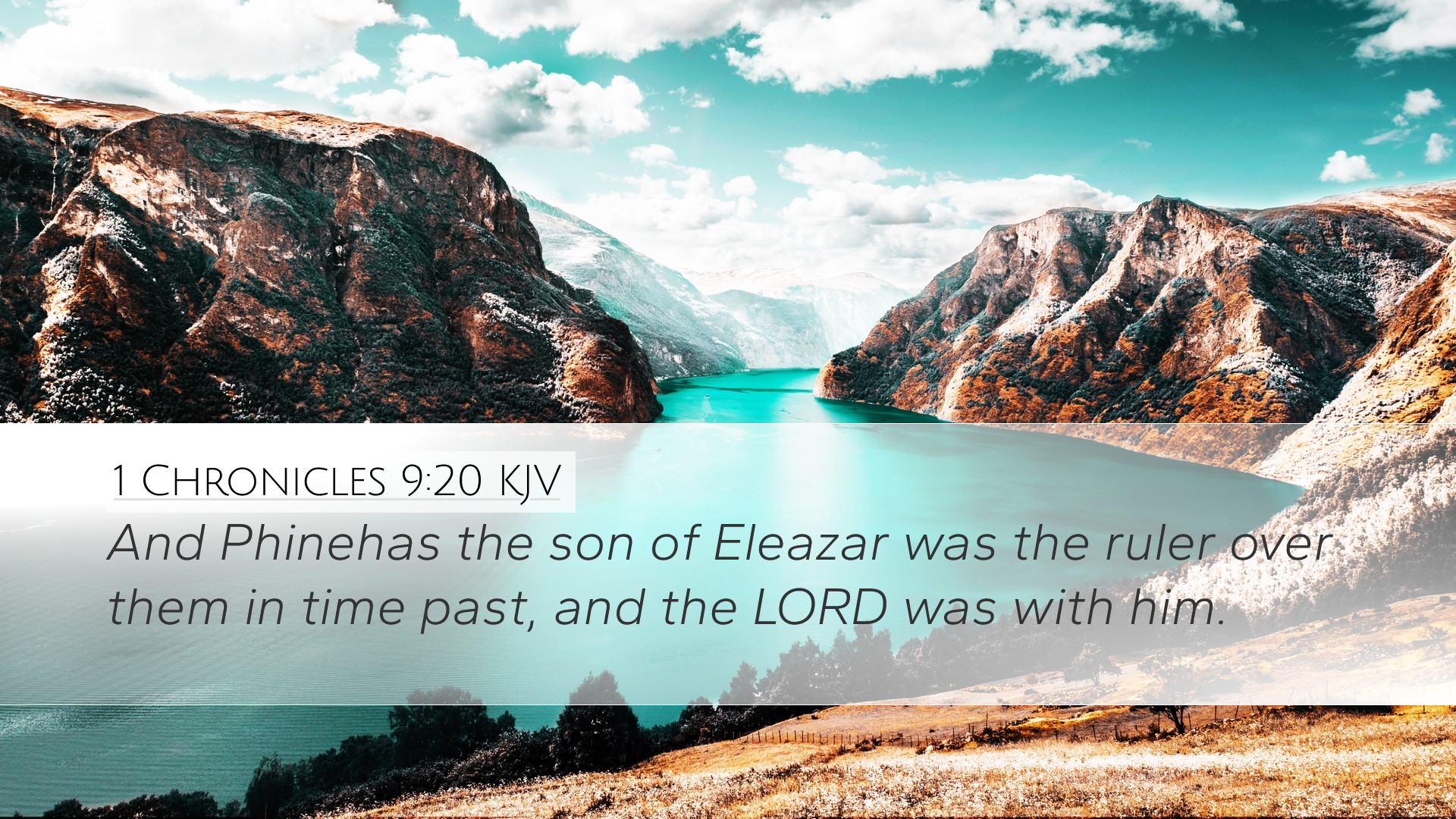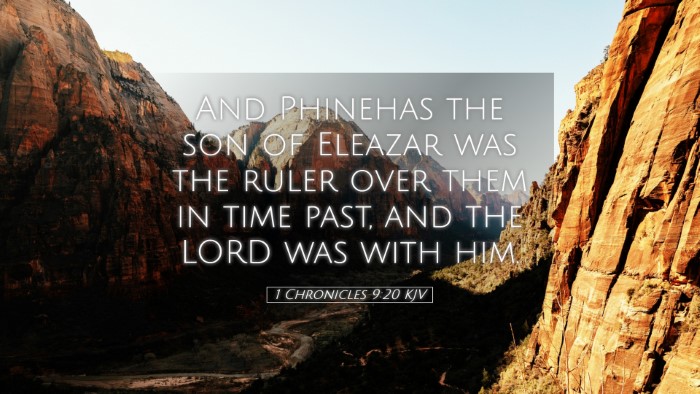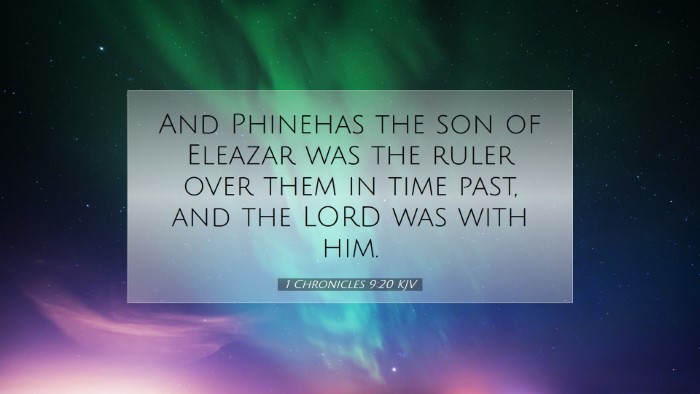Commentary on 1 Chronicles 9:20
Verse: 1 Chronicles 9:20 - "And Phinehas the son of Eleazar was the ruler over them in time past, and the Lord was with him."
Introduction
This verse appears in the genealogical and historical narrative found in 1 Chronicles, which details the Levitical order and the organization of the priesthood. Understanding the significance of Phinehas and the divine favor towards him is crucial for appreciating the broader themes of leadership, zeal for God, and the covenant faithfulness of Israel.
Contextual Background
The book of Chronicles was likely compiled after the Babylonian exile, aiming to provide the returning exiles with a sense of identity and continuity in their worship practices. The genealogies, such as the one including Phinehas, serve to remind the community of their heritage and the faithfulness of God through generations.
Insights from Public Domain Commentaries
Matthew Henry's Commentary
Matthew Henry emphasizes the importance of Phinehas as a model of zeal for God’s honor. He notes that Phinehas was not only a priest but also a man of action who showed fervent dedication in a time when such zealousness was crucial for the spiritual state of Israel. Henry highlights the following key points:
- Zelous Leadership: Phinehas is remembered for his decisive action during the crisis at Peor, which earned him a covenant of peace and a promise of an enduring priesthood. This underscores that true leadership in spiritual matters often requires boldness and commitment to God's commands.
- Divine Favor: The phrase "the Lord was with him" implies that Phinehas enjoyed God’s special presence and assistance. Henry clarifies that being in alignment with divine will is essential for effective ministry and leadership.
- Historical Significance: His lineage established a lasting priesthood, which serves as a reminder of the continuity of God's covenant with Israel through faithful individuals.
Albert Barnes' Notes on the Bible
Albert Barnes provides a historical perspective on the role of Phinehas in the context of Israelite worship and priesthood. Barnes observes the following:
- Phinehas as a Leader: He was not only a religious figure but also a leader who played a crucial role during a pivotal moment in Israel's history. His act of zeal against sin was pivotal in the covenant relationship between God and Israel.
- God's Divine Presence: Barnes reiterates that "the Lord was with him" indicates God’s presence and support when one acts in accordance with divine principles. This highlights the necessity for leaders to be attuned to God’s guidance.
- Covenant Continuity: The lineage of Phinehas establishes a precedent for future priests, linking the past with present and future generations of worshippers in Israel. This is an essential aspect of understanding God’s plan through history.
Adam Clarke's Commentary
Adam Clarke dives into deeper theological implications regarding the character and actions of Phinehas. He notes that:
- The Nature of Zeal: Clarke discusses the righteous zeal of Phinehas, which was not merely passionate but was directed towards upholding God’s holiness in Israel amidst widespread moral decay. This is critical for contemporary ministers in understanding the balance between love and discipline.
- Historical Impact: Clarke connects the act of Phinehas with the wider narrative of Israel's history, indicating how individual actions can have profound impacts on national destiny. He invites readers to reflect on how faithful leadership can redirect a people towards God.
- Theological Reflection: Clarke asserts that God's presence with Phinehas serves as a profound reminder that divine favor accompanies those who align their lives with God's covenantal expectations. This reinforces the call to holiness and commitment for all believers.
Theological Implications
The significance of Phinehas in 1 Chronicles 9:20 is manifold. It communicates key elements about leadership in faith:
- Righteous Leadership: Effective leaders must prioritize ardent faith and adherence to God's commandments.
- Divine Approval and Presence: The guarantees of God's presence are available to those who dedicate their lives to service and righteousness, making it crucial for spiritual leaders to seek God's will earnestly.
- Legacy of Faithfulness: The priests descended from Phinehas serve as enduring testimonies to God's faithfulness, suggesting that our actions have implications that extend beyond our immediate time and context.
Conclusion
In summary, 1 Chronicles 9:20 offers invaluable insights into the character and significance of Phinehas, a pivotal priestly figure whose leadership exemplifies the qualities of zealousness and faithfulness in service to God. The historic and theological lessons derived from this verse challenge modern believers to reflect on their own commitment to God, the importance of leading with integrity, and the power of legacy in the stewardship of faith.


